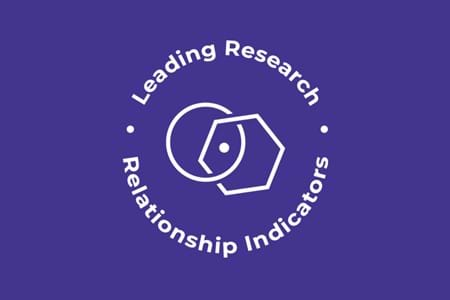
Current projects
We are currently undertaking a range of research and evaluation projects which are detailed below.
- Family Dispute Resolution and Separation
- Post-Separation Co-parenting Apps: Can They Help Families Avoid Conflict? Australian Research Council Linkage Grant
- Remote Family Dispute Resolution During and After COVID-19
- Relationships Australia Family Dispute Resolution Outcomes Study
- AccessResolve Property Dispute Resolution Study
- Family Violence
- Perpetrator Program Attrition and Participant Engagement Strategies
- Perpetrator Program Attrition and Participant Engagement Strategies
- Child and family-focused prevention and early intervention projects
- Strengthening Family Relationships in the City of Yarra: An Evidence-Informed, Place-Based Approach
- ‘I like, like you’: Strengthening the Evidence Base
- Relationships Australia National
- Relationship Indicators
- National surveys
Family Dispute Resolution and Separation
Participation, agreement and reduced acrimony through family mediation: Benefits for the ambivalent client in a mandatory setting
2023
In Australia, it is mandatory for separating couples to attempt Family Dispute Resolution (FDR) before taking a parenting matter to court. In this context some clients may attend FDR solely as a means of accessing court processes. This article examines key outcomes across a large sample of FDR clients at Relationships Australia Victoria. Participation, rates of agreement, levels of satisfaction and levels of acrimony are assessed for the sample as a whole and for a subgroup of those indicating their intention to proceed to court.
We provide FDR from centres across metropolitan Melbourne and regional Victoria. Visit www.rav.org.au/FDRlocations to find your nearest centre.
Post-Separation Co-parenting Apps: Can They Help Families Avoid Conflict? Australian Research Council Linkage Grant
2021–23
The ubiquity of smartphones has been accompanied by a proliferation of apps to help separated parents manage their post-separation arrangements. Family law professionals are often asked about these apps by clients—yet there has been no empirical evidence that either professionals or clients can draw on about the potential benefits and risks of these apps.
We are a Partner Organisation with academics at the Australian National University and University of Wollongong on an Australian Research Council (ARC)-funded study which aims to address this gap. In 2020, the study was awarded funding through an ARC Linkage Grant, with a March 2021 to March 2023 project timeline. The project involves multiple stages including:
- a survey of family law professionals
- a survey of app users
- and an evaluation of popular post-separation parenting apps.
We have identified numerous benefits and risks associated with the use of co-parenting apps (applications). We have also found that family law professionals generally report little knowledge of co-parenting apps. A number of our Family Dispute Resolution (FDR) Practitioners participated in testing 10 popular apps, all of which were rated 'poor' to ‘fair’. Data collection for this study is now complete and the team is working on communicating findings.
In 2022, we presented on this study in a symposium at the Family and Relationships Services Australia (FRSA) Conference and in a paper at the Australian Institute of Family Studies (AIFS) Conference. In 2023, there will be another symposium at the FRSA conference, as well as a presentation at the National Mediation Conference.
A number of articles from this study will be published in peer-reviewed journals. The first two are now available:
- Payne JL, Smyth BM, Irving M, Heard G and Althor G (2022) ‘Family law professionals’ views of post-separation parenting apps’, International Journal of Law, Policy and the Family, 36(1), doi:10.1093/lawfam/ebac029.
- Heard G, Irving MA, Smyth BM, Payne JL and Althor G (2023) ‘Risks and benefits of post-separation parenting apps: perceptions of family law professionals in Australia and New Zealand’, Journal of Social Welfare and Family Law, 45(2), doi: 10.1080/09649069.2023.2206225
- Smyth BM, Payne JL, Irving M and Heard G (in press) ‘Popular post-separation parenting apps: an examination’, Family Court Review.
You can read more about the beginnings of the project on page 14 of our 2019/20 Annual Report.
Remote Family Dispute Resolution During and After COVID-19
2021–22
As a major provider of FDR in Victoria, RAV recognised a need to providing ongoing access to this important service during COVID-19 ‘lockdowns’. In the early stages of the pandemic, RAV’s FDR service made a rapid shift to remote service delivery via telephone and video-conferencing. We consequently evaluated the remote delivery of FDR services with a focus on the perspectives of clients and practitioners during and after COVID-19.
An article from this study, 'Remote FDR services for COVID and post-COVID times: client and practitioner perspectives', was published in a special COVID-19 issue of the international journal, the Family Court Review:
- Heard G, Bickerdike A and Opoku S (2022) ‘Remote Family Dispute Resolution services for COVID and post-COVID times: client and practitioner perspectives’, Family Court Review, 60(2): 220-240, doi:10.1111/fcre.12639.
Relationships Australia Family Dispute Resolution Outcomes Study
2017-19
The Relationships Australia (RA) FDR Outcomes Study was a national project that was jointly led by Relationships Australia Victoria (RAV) and Relationships Australia Queensland (RAQ). RAV led the property component of this national study, which involved collecting survey data at multiple points in time from 1,695 clients across Australia. Combined with interview data from 200 of these clients, the study generated evidence on the outcomes of RA FDR services in both parenting and property disputes.
Key findings of the research include that:
- Almost two-thirds (65%) of participants reached a full or partial agreement on one matter or more.
- Overwhelmingly, participants found FDR to be safe, accessible and affordable. The traits of mediators were rated most positively.
- Reaching an agreement significantly reduced acrimony between the two parties. Simply participating in FDR alone, however, also reduced acrimony among those clients who expected to proceed onto court, and the FDR process also improved communication and adjustment to separation for many participants.
We are now in the process of communicating the results of this study. Several peer-reviewed papers have been published on this study:
Heard G and Bickerdike A (2021) ‘“Am I on track?” Family Dispute Resolution & the client need for guidance in post-separation property matters’, Australian Journal of Family Law, 34(3): 211-230
Heard G and Bickerdike A (2021) ‘Dispute resolution choices for property settlement in Australia: Client views on the advantages and disadvantages of Family Dispute Resolution and legal pathways’, Family Court Review, 59(4): 790-809.
Heard G, Bickerdike A and Lee J (2021) ‘Family Dispute Resolution for property matters: The case for making space’, Australasian Journal of Dispute Resolution, 31(2): 158-172.
AccessResolve Property Dispute Resolution Study
2019–20
AccessResolve is RAV’s property conciliation service for court-ordered clients. Although it supports a relatively high-conflict cohort of clients, it records strong settlement rates of over 70%. Our recent evaluation investigated how and why this was achieved, with the following findings.
- Clients report strong satisfaction with the service, particularly with practitioner characteristics.
- While practitioners have a greater capacity to be more advisory under the conciliation model, clients have a strong sense of confidence in the impartiality of practitioners.
- A large majority of participating clients felt able to express themselves during their session. Some interviewees described a strong sense of self-determination in the process.
These findings point to important elements of the conciliation model underpinning high settlement rates. This is important because it helps inform the ongoing development and refinement of this and other models of alternative dispute resolution.
We presented on this study at the National Mediation Conference in September 2021 and are continuing to report on and disseminate the study’s findings.
Family Violence
Perpetrator Program Attrition and Participant Engagement Strategies
2023–ongoing
We are proud to be collaborating on a Victorian Government Family Violence Research Grant. The project, led by Monash University, is designed to enhance the evidence base in Victoria on perpetrator attrition and engagement strategies, to inform service delivery, innovation and best practice. RAV is one of the largest and continuous providers of Men’s Behaviour Change Programs (MBCPs) in Victoria. MBCPs are an important family violence intervention strategy, as such RAV is committed to increasing the evidence base for effective interventions and for this to inform innovations in practice development and implementation.
As a project partner, we will participate in the co-design of data collection, provide program attrition data, invite program participants, affected family members and practitioners to participate in research, and contribute to the development of evidence-based engagement guidelines. For more information, visit the Monash University website.
Child and family-focused prevention and early intervention projects
Strengthening Family Relationships in the City of Yarra: An Evidence-Informed, Place-Based Approach
2023-ongoing
RAV, through our Melbourne Family Relationship Centre (FRC) is a proud partner of the Yarra Communities that Care (CTC) initiative. RAV is leading the ongoing evaluation of Yarra CTC. In 2023, RAV is focusing on the project’s collaborative, place-based approach to strengthening family relationships in the City of Yarra, and its outcomes for families and the community.
‘I like, like you’: Strengthening the Evidence Base
2023-ongoing
‘I like, like you’ is our universal schools-based primary prevention program designed to strengthen healthy relationships and promote mental health and wellbeing for students in grades 5 to 10. This project will strengthen evidence-based content, enable the program to adopt a comprehensive evidence-informed program logic, and support continuous monitoring and evaluation, adaptation and consultation with young people.
Relationships Australia National
Relationship Indicators
2022-23
RAV, as part of the Relationships Australia National Federation, is pleased to share the results of our nationally representative survey into the state of relationships in Australia. This is the latest in a series of Relationships Indicators surveys conducted by the Federation across recent decades.
The 2022-23 survey explored the ‘most the important, meaningful’ relationship people have in their lives, people’s experiences with partnered relationship breakdown and bereavement, as well as other emerging relationship issues. It also focused on people’s social identities, by exploring the roles that group relationships play in our lives.
Key findings:
- Having a strong and reliable relationship improves subjective wellbeing, reduces loneliness, and enhances mental health.
- The effects of mental ill-health were pervasive across relationships, and a major pressure in itself for 22.1% of people.
- 1.7 million Australians feel unsafe disagreeing with their most important person. 7% are experiencing controlling behaviour in their important relationship.
National surveys
Ongoing
Relationships Australia conducts regular research projects, partners with universities and runs surveys throughout the year on topics of relevance to our clients and all Australians.









